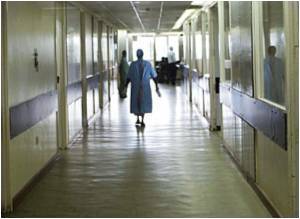A study in JAMA says that infants who received heptavalent pneumococcal conjugate vaccination were more likely than unvaccinated controls to have nasopharyngeal acquisition

Elske J. M. van Gils, M.D., of University Medical Center Utrecht, the Netherlands, and colleagues examined the association between PCV-7 vaccination and nasopharyngeal acquisition of serotype 19A pneumococci in 1,003 healthy newborns, with follow-up to the age of 24 months in the Netherlands, which has low antibiotic resistance rates. The study was conducted before widespread PCV-7 implementation in infants, between July 2005 and February 2008. Nasopharyngeal swabs were obtained at the age of 6 weeks and at 6, 12, 18, and 24 months. Infants were randomly assigned to receive 2 doses of PCV-7 at 2 and 4 months; 2 + 1 doses of PCV-7 at 2, 4, and 11 months; or no dosage (unvaccinated control group).
Nine hundred forty-eight children completed the study. Fifty-four nasopharyngeal serotype 19A carriage isolates from 318 in the 2-dose group, 66 isolates from 327 in the 2 + 1-dose group, and 33 isolates from 303 in the unvaccinated group were collected from 6 weeks through 24 months. "At 24 months and after having completed the vaccine series, the cumulative proportion of participants with acquisition of a new serotype 19A clone in the 2 +1-dose group was 16.2 percent (53 of 327) vs. 9.2 percent (28 of 303) in the unvaccinated control group. The cumulative proportion in the 2-dose group was also higher than in the unvaccinated group but did not reach statistical significance (13.2 percent; 42 of 318 children)," the authors write.
The proportion of children with new 19A acquisition who had used antibiotics in the last 6 months (18.7 percent) did not differ among groups.
"In addition to the contributing role of antibiotic selective pressure as previously described by others, we now have demonstrated, to our knowledge for the first time, the facilitating role of PCV-7 in nasopharyngeal acquisition of serotype 19A. In view of the proven disease potential of serotype 19A for otitis media and invasive pneumococcal disease and the observed association with antibiotic resistance, vaccines of broader coverage including protection against serotype 19A may further aid to pneumococcal disease prevention. However, we need to be aware that other serotypes with similar characteristics and disease potential may be the next in line to proliferate and therefore pneumococcal surveillance remains important after introduction of expanded pneumococcal conjugate vaccines," the researchers conclude.
Source-Eurekalert











